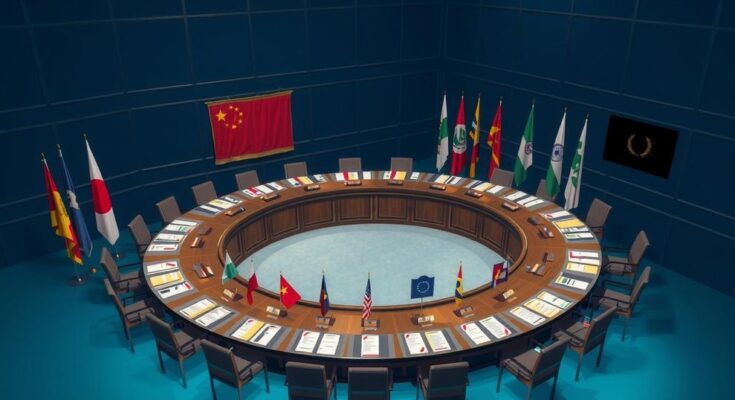The political pact between Kenya’s ruling and opposition parties aims to enhance cooperation in policymaking but faces criticism as an attempt to suppress dissent. Leaders Odinga and Ruto assert it is not about sharing power but fostering dialogue. Critics question the implications for parliamentary opposition, highlighting tensions within the political landscape.
In a significant development in Kenyan politics, the ruling party and the main opposition have established a pact aimed at fostering collaboration in crucial government policy-making. Critics, however, perceive this agreement as a method to suppress opposition voices, raising concerns about democracy in the country.
Odinga, head of the Orange Democratic Movement, emphasized that the agreement is not indicative of a new political alliance but a cooperative effort for national development. He affirmed that this decision aims to contribute positively to the nation’s growth and stability.
President Ruto of the United Democratic Alliance commended Odinga for making challenging decisions that benefit the public, suggesting that previous political choices lacked genuine appeal to the populace. Ruto’s remarks highlight the necessity for authentic political actions rather than mere adherence to conventional political correctness.
Political analyst Nanjala Nyabola questioned the implications of this pact, asking whether it effectively eliminates opposition within the parliament. The leader of the opposition Wiper Democratic Party, Kalonzo Musyoka, condemned the agreement as a profound betrayal of the Kenyan populace, signifying deep divisions in perceptions about the pact’s impact.
This marks the fourth occasion in which Odinga, a five-time presidential candidate who has yet to succeed, has allied with a ruling president. Both leaders clarified that their intent is not to apportion government roles but to establish a framework for ongoing dialogue regarding issues of national significance.
Odinga further asserted that the pact is designed to alleviate political tensions and acknowledges that the opposition must engage constructively rather than merely critique government actions. He committed to maintaining regular consultations to address pressing national issues.
The opposition has faced scrutiny for its inactivity amidst the government’s tax increases and the crackdown on anti-government protests in June 2024, raising questions about its effectiveness. In an earlier setback, Odinga’s failure to secure the African Union chairperson position has cast uncertainty over his political trajectory.
The political agreement between Kenya’s ruling and opposition parties has sparked criticism, as many view it as a strategy to dilute opposition influence. While leaders endorse collaboration on national issues, dissenters express concerns regarding its impact on democracy. This illustrates the ongoing challenges within Kenyan politics, as the opposition grapples with maintaining its relevance and addressing public grievances effectively.
Original Source: www.washingtonpost.com




